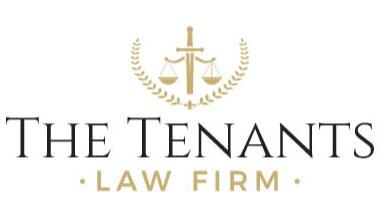How Can Renters Protect Their Rights Against Sexual Harassment in Los Angeles?
Sexual harassment within rental properties in Los Angeles is a distressing reality that many tenants face, impacting their sense of security and well-being. This form of harassment can manifest in various ways, from unwelcome advances and comments to more overt forms of misconduct. Fortunately, tenants in Los Angeles are afforded legal protections under tenant laws that prohibit sexual harassment. These laws establish the landlord's responsibility to maintain a safe and harassment-free environment for tenants, ensuring that they can reside in their homes without fear of harassment or discrimination. Understanding these legal protections is crucial for tenants to assert their rights and seek recourse if they experience sexual harassment in their rental accommodations.
Understanding Sexual harassment:
In the context of rental properties, sexual harassment encompasses various forms of unwelcome or inappropriate behavior directed towards tenants, such as unwanted advances, suggestive comments, or invasive inquiries about personal matters. This behavior can create a hostile environment that undermines tenants' sense of safety and privacy within their own homes. Beyond the immediate discomfort, sexual harassment can have profound emotional and psychological impacts on tenants, leading to anxiety, stress, and a diminished quality of life. Moreover, the financial implications of such harassment may include relocation costs or lost income if tenants feel compelled to leave their homes to escape the harassment. In Los Angeles, recognizing and understanding the definition and impact of sexual harassment is crucial for tenants to protect their rights and seek assistance if they experience such misconduct in their apartments.
Understanding Sexual harassment:
In the context of rental properties, sexual harassment encompasses various forms of unwelcome or inappropriate behavior directed towards tenants, such as unwanted advances, suggestive comments, or invasive inquiries about personal matters. This behavior can create a hostile environment that undermines tenants' sense of safety and privacy within their own homes. Beyond the immediate discomfort, sexual harassment can have profound emotional and psychological impacts on tenants, leading to anxiety, stress, and a diminished quality of life. Moreover, the financial implications of such harassment may include relocation costs or lost income if tenants feel compelled to leave their homes to escape the harassment. In Los Angeles, recognizing and understanding the definition and impact of sexual harassment is crucial for tenants to protect their rights and seek assistance if they experience such misconduct in their apartments.
Rights and Protections:
Under Los Angeles housing laws, tenants have the fundamental right to live in a rental property free from sexual harassment. This includes protection from unwelcome advances, comments, or any other form of inappropriate behavior from landlords, property managers, or other tenants. Landlords have a legal responsibility to ensure a safe and harassment-free environment within their rental properties. This includes taking proactive measures to prevent sexual harassment, promptly addressing any complaints or reports, and implementing clear policies and procedures for handling such incidents. By understanding and upholding these rights and responsibilities, tenants and landlords can work together to foster a respectful and safe living environment for all residents in Los Angeles apartments.
Reporting and Remedies:
When facing instances of sexual harassment in their apartment in Los Angeles, tenants should be aware of the reporting process available to them. This may involve contacting local housing authorities, tenant advocacy organizations, or law enforcement agencies to file a formal complaint and initiate an investigation. Additionally, tenants have legal remedies at their disposal to seek redress for sexual harassment, including filing civil lawsuits against the responsible parties. Through legal action, tenants can pursue compensation for damages incurred, such as emotional distress, medical expenses, and any other losses resulting from the harassment. By understanding these reporting and legal avenues, tenants can assert their rights and hold accountable those who engage in sexual harassment in their rental properties.
Conclusion:
It is vital for tenants in Los Angeles to be well-informed about their rights concerning sexual harassment in their apartments. By understanding the legal protections afforded to them and the available avenues for reporting and seeking remedies, tenants can effectively address instances of sexual harassment and safeguard their well-being. It is imperative that tenants assert their rights, report any incidents of sexual harassment promptly, and seek legal assistance if necessary to create and maintain a safe and respectful living environment for themselves and their fellow residents. Through proactive measures and collective advocacy, tenants can contribute to combating sexual harassment and fostering a culture of respect and dignity in rental properties across Los Angeles.
Tenants Law Firm is here to help. If you are in need of any legal assistance, contact us by calling (310) 432-3200 or by using this form.
